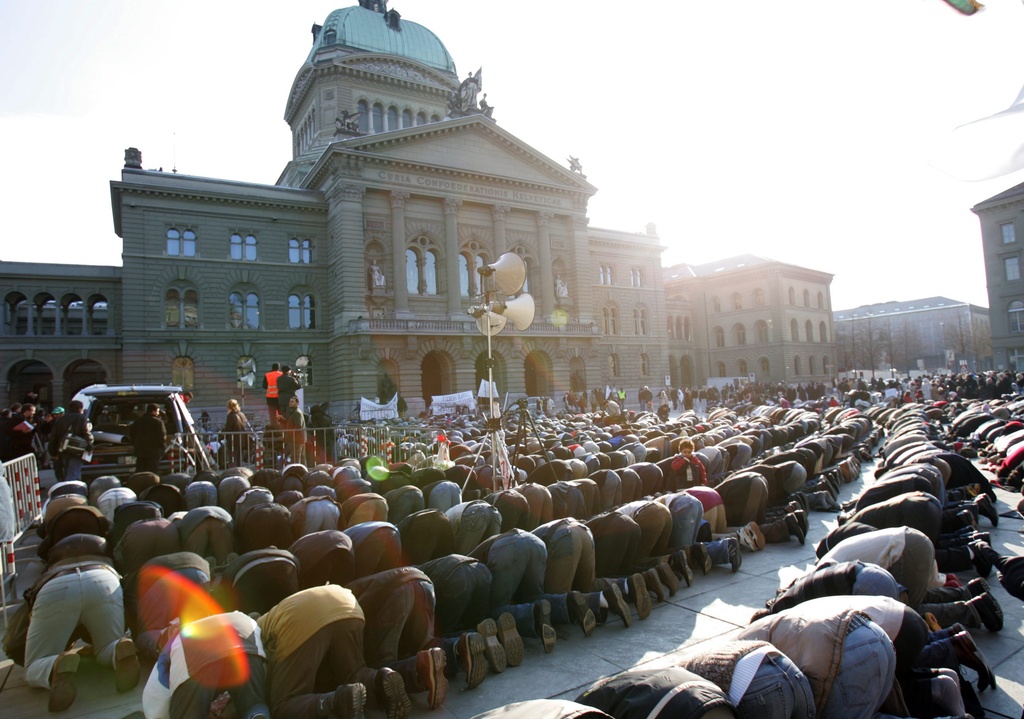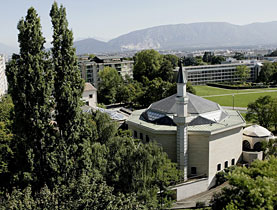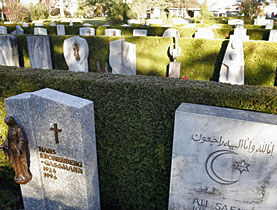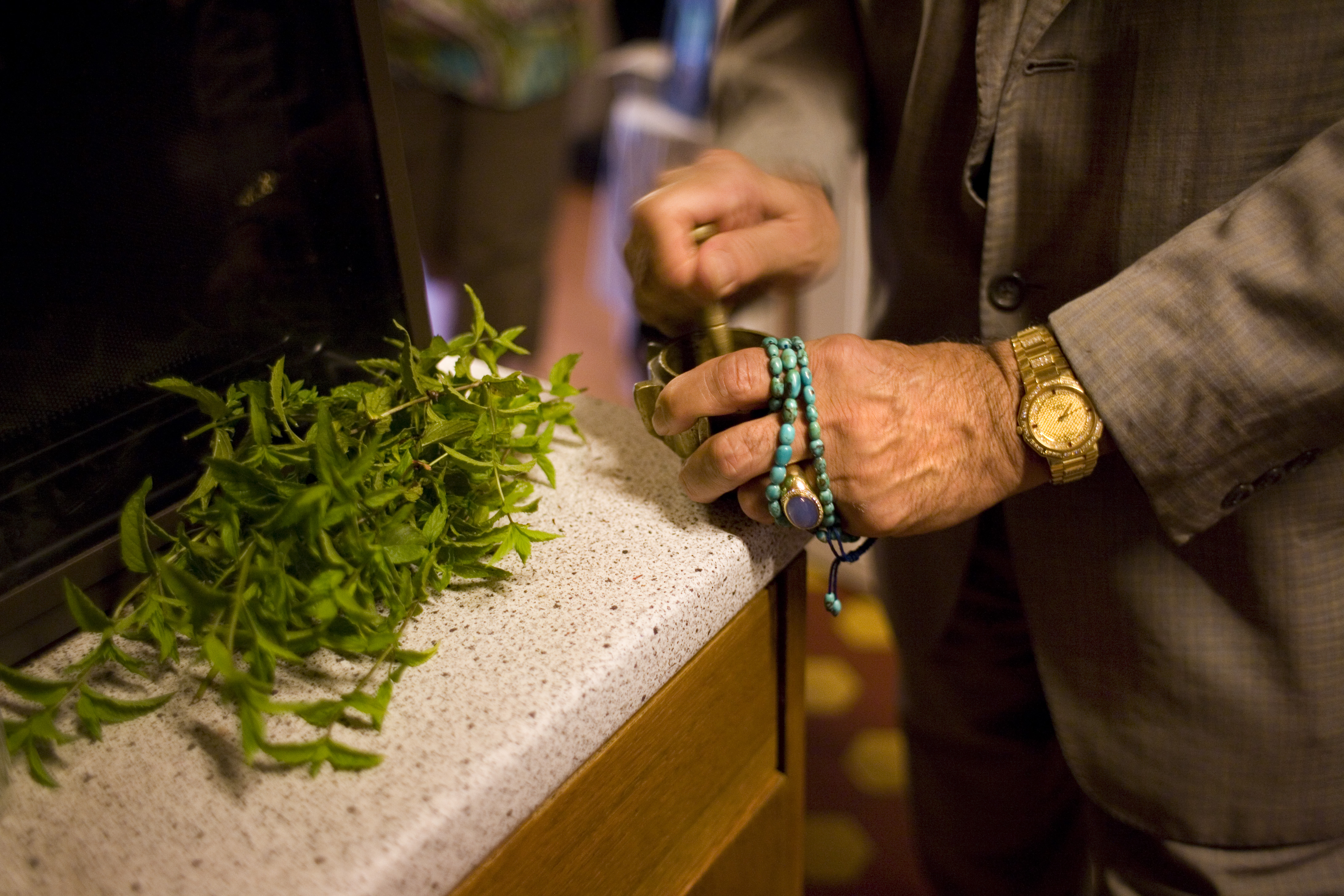Muslim converts raise fears in Switzerland

Some young Swiss converts to Islam are a potential threat to the country’s security, according to the head of the Migration Office.
Alard du Bois-Reymond was speaking about the Central Islamic Council (IZRS), founded by young converts in the western town of Biel. The group strongly denies his assertion.
Du Bois-Reymond told the German-language newspaper NZZ am Sonntag that such converts include people who want a “radically different society” and pointed to examples in Britain and Germany where such demands had provided “fertile ground for potential terrorists”.
The IZRS was also the subject of a recent highly critical article in the German-language magazine Weltwoche, which described its leader, Nicolas Blancho, as “the most dangerous Islamist in Switzerland”.
It described his preaching based on the strict form of Islam practised in Saudi Arabia and quoted examples of intolerance towards women and non-Muslims.
One of the IZRS’s long term aims is certainly to establish schools where conflicts that some Muslims currently face in public schools – such as obligatory swimming lessons for girls at mixed primary schools – would not arise.
But the accusations of terrorism are roundly rejected by IZRS spokesman, Qaasim Illi. There is no parallel with converts in other countries who have been involved in terrorist acts, he told swissinfo.ch.
“Those converts, did they speak in public, did they work for some kind of ideal or political aim which they discussed in public? Of course not.
“And that’s the point: they are people who went to some sort of back street mosque, far away from the media. We are just the opposite: from the beginning we said we would address the public. Our methods are based on the rule of law, not on terrorism,” he said.
Law-based state
The IZRS was set up shortly before the Swiss people voted to ban the construction of minarets last November. In the wake of a highly effective anti-minaret campaign, some traditional Muslim groups wondered if they had been too reticent about presenting their position.
The aim of the IZRS, Illi explained, is to gather Swiss Muslims together to make them “politically capable” of confronting future votes on issues concerning Islam, such as a ban on headscarves or burkas.
Denying Weltwoche’s accusations that the IZRS wants to introduce Muslim sharia law – a law that “has a place only in an Islamic state or system” – he said that Switzerland is a liberal democratic state with the principle of pluralism.
“We are asking for our rights, but we respect others’ rights too. A Muslim woman in this country who doesn’t want to wear the headscarf doesn’t have to. In this system she can even decide to convert to Christianity. Everything this system allows is possible.
“And the system allows us to be as we want. We can grow a beard, we can wear the clothes we want, and we expect to be recognised and not to be portrayed as terrorists.”
Controversial
But the IZRS is a controversial organisation both inside and outside the Swiss Muslim community. Saïda Keller-Massahli of the Forum for a Progressive Islam, told Weltwoche that although Illi and Blancho present a friendly and civilised face to the public, they are dangerous.
“They are luring young Muslims and non-Muslims who are looking for clear guidelines,” she said, describing them as people who need to see the world in black and white.
“The council is spreading a dangerous ideology, which is not consistent with the Swiss constitution.”
She poured scorn on its claim to be financed solely from within Switzerland. “For me it’s beyond doubt that the association, or individuals, get money directly from Saudi sources,” she told the journal. She wants the council banned.
Another prominent Muslim, Hisham Maizar of the Federation of Islamic Organisations in Switzerland, told the Tages-Anzeiger newspaper that the organisation “attracts a lot of young people with no prospects” – but warned that a ban would only make it more attractive.
Larbi Guesmi, who often leads the prayers for the Muslim community in Neuchâtel, is more nuanced.
“I think that even if [Blancho] has ideas that are – I won’t say extremist, but perhaps unusual – they are still ideas that can be discussed. It’s normal for there to be different ideas in society,” he told swissinfo.ch.
He said he understood Blancho’s concerns about the minaret vote, and thinks in retrospect that the Muslims should have made more effort to get across the fact that the ban was unconstitutional.
Nadia Karmous, who heads the Cultural Association of Muslim women in Switzerland thinks that political party activity is less important than furthering mutual understanding.
“We have to work to get to know each other better, and to explain things to people who are afraid [of Islam],” she told swissinfo.ch
Attraction
Researcher Susanne Leuenberger of Bern University, who is currently writing a thesis on Muslim converts in Switzerland, says she is inclined to believe that there is nothing behind the IZRS other than what it says publicly.
“I’ve been to various meetings of the group, and I can’t do more than be there and listen to what they say.
“After all, you can accuse anyone of having hidden intentions – including the government if you want to. That’s always what people do with minorities they want to keep an eye on: they accuse them of having bad intentions.”
She says many young people are attracted to the IZRS because they see it as an organisation that is actually doing something for them.
It is also very professional, with a good website which it keeps updated, and it invites skilful speakers to address meetings.
“Their kind of religious rhetoric, of religious practice, combined with what you might call a sort of MTV video aesthetics is an attractive mixture,” she told swissinfo.ch
While some of the older established Muslims reproach the IRZS for attracting drifting youngsters, Guesmi admits that “young people always have their own demands,” and that it is not always easy to meet them. “It’s really a battle,” he said.
That is evidently where the IRZS scores.
“We appeal to young people because we address their problems,” Illi said.
Julia Slater, swissinfo.ch
The Muslim community in Switzerland accounts for about 4.5% of the population.
Most Muslim immigrants came from the former Yugoslavia and Turkey. The community includes up to 100 nationalities.
The number of Muslims doubled between the censuses of 1990 and 2000, largely boosted by an influx of refugees and asylum seekers, including from the war in the former Yugoslavia.
The 2000 census found that just over 88% of Muslims living in Switzerland were foreign. Of those with a Swiss passport, just under 4% had held it since birth.
In 2000 39.2% of Muslims were under 20 years old (the figure for the population as a whole was 22.9%)
There are no official figures for the number of converts; Susanne Leuenberger estimates that there are about 10,000, of which the vast majority converted to marry a Muslim.

In compliance with the JTI standards
More: SWI swissinfo.ch certified by the Journalism Trust Initiative













You can find an overview of ongoing debates with our journalists here . Please join us!
If you want to start a conversation about a topic raised in this article or want to report factual errors, email us at english@swissinfo.ch.